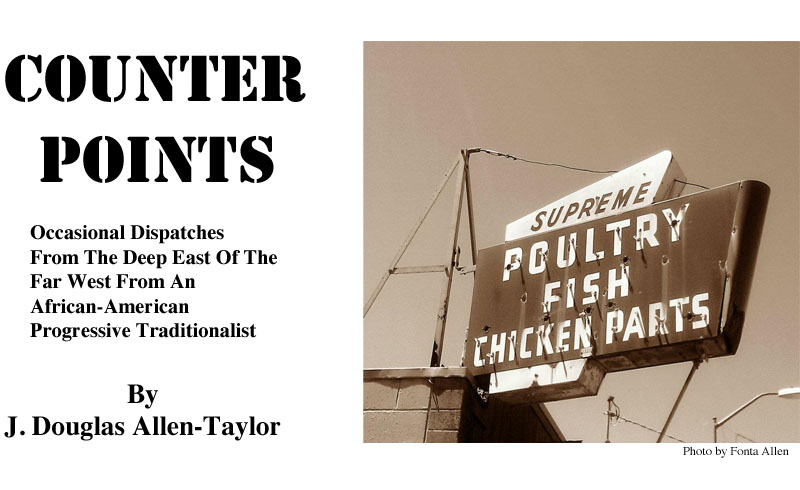|
|
A PROFILE OF MR. BRATTON'S STOP-AND-FRISK
In the early hours of Wednesday morning, after a raucous meeting where citizens on both sides of the issue filled the Council chambers and several side rooms, the Oakland City Council ratified the controversial quarter of a million dollar consultant contract with national police consultants Strategic Policy Partnerships to “put in place a much needed short-term crime fighting strategy and a citywide reduction and community safety plan.” (“Oakland City Council Approves Bratton 7-1; Sheriff Deputies, Civilian OPD Positions, As Well” Oakland Local January 23, 2013, “Oakland Approves Bratton Contract” Oakland Tribune January 23, 2013, “Oakland Approves Crime-Fighting Steps After Stormy Meeting” Los Angeles Times January 23, 2013) The consultant contract wasn’t controversial because Oakland folks didn’t think we needed a crime fighting strategy (many in the city actually think the police and administration have been fumbling around without either plan or clue for years), but because one of the SPP consultants is former New York Police Commissioner and Los Angeles Police Chief William Bratton. Mr. Bratton is controversial because he is an advocate of the “stop-and-frisk” crime-fighting policy. Oakland officials want Mr. Bratton not for his “stop-and-frisk” advocacy, but for his expertise on the police department’s computerized policing management system, CompStat (“What Is CompStat” University of Maryland “Implementing And Institutionalizing CompStat In Maryland”). But “stop-and-frisk” is baggage Mr. Bratton cannot and refuses to discard, even if Oakland officials wish he could. (“Former NYPD Chief Bill Bratton Compares Stop-And-Frisks To Chemotherapy” DNAinfo.com New York March 22, 2012) “Stop-and-frisk” works pretty much as it sounds. Police stop people walking or riding the city streets to do an ID check and physical search, not because they actually observe the people doing anything illegal but because the police think the people might be up to something illegal. If the check and search turns up something suspicious or illegal, the folks are either detained or arrested. If not, the “suspects” are let go. The practice would seem to be a direct violation of the Fourth Amendment of the U.S. Constitution, which reads, simply, that “the right of the people to be secure in their persons, houses, papers, and effects, against unreasonable searches and seizures, shall not be violated, and no Warrants shall issue, but upon probable cause.” Opponents of “stop-and-frisk” also charge that the policy is openly racially discriminatory, as it is African-American or Latino youth who are the ones police tend to believe are walking or riding around with bad intent. Oakland city officials acted quickly to try to put away fears that approval of the SPP consultant contract would lead to the adoption of “stop-and-frisk” in Oakland. In a memo to City Administrator Deanna Santana intended to “clarify…key issues,” Police Chief Jordan stressed that SPP’s role was simply to “provide recommendations [to the Police Chief] for his consideration and implementation,” adding that he would not institute “ANY policies, programs, or strategies” without first consulting with the federal court compliance director who is scheduled to soon begin monitoring Oakland’s police activities under federal court order (the caps on the “ANY” were put in by Mr. Jordan). Mayor Quan was even more specific. The San Francisco Chronicle reported that Ms. Quan does not favor a “stop-and-frisk” policy in Oakland, quoting the mayor as qualifying it by saying, “not the way people have been describing it. You don’t have to do random stopping of people. I don’t support that. I don’t believe in just random stopping of people walking down the streets.” (“Mayor Jean Quan Says No To ‘Stop-Frisk’” San Francisco Chronicle January 18, 2013) I have no idea what the mayor knows or doesn’t know about the everyday practices of Oakland police, so I’ll accept at face value that she is unaware that “stop-and-frisk” is a already a regular practice of Oakland police, and has been going on for years. You see this frequently enough on the Oakland flatland streets, young African-American or Latino men stopped by police while the young men are walking or driving. They are patted down, their pockets searched, their ID’s checked, sometimes handcuffed for a time, many times then let go without even the issuance of a ticket. Once, in front of my own house, I saw police toss the contents of a car full of young African-Americans, throwing clothes and other personal items out onto the curb, then driving off, leaving the men to retrieve their stuff from the ground. It’s certainly possible that in some of these cases, the police involved have legitimate suspicions and grounds for a search. But because it’s so difficult to prove that any particular stop is racial motivated or an illegal search—even if it doesn’t result in an arrest or a ticket issued—and because police appear to suffer no consequences even if they are caught doing it, the temptation is too great for the at least some of Oakland cops to do the so-called “random” stops of certain citizens. Following the Tuesday-evening-to-Wednesday-morning Council meeting, one of the mayor’s aides emailed the announcement that the police consultant contract was approved “with an amendment emphasizing that whatever policies follow from the consulting will not permit any racial profiling.” When the Oakland City Council has to assure the Oakland public that our police are not going to violate the Constitution or break federal or state law, you know it’s a tacit acknowledgement by city officials that some of our police have, and will.
|
